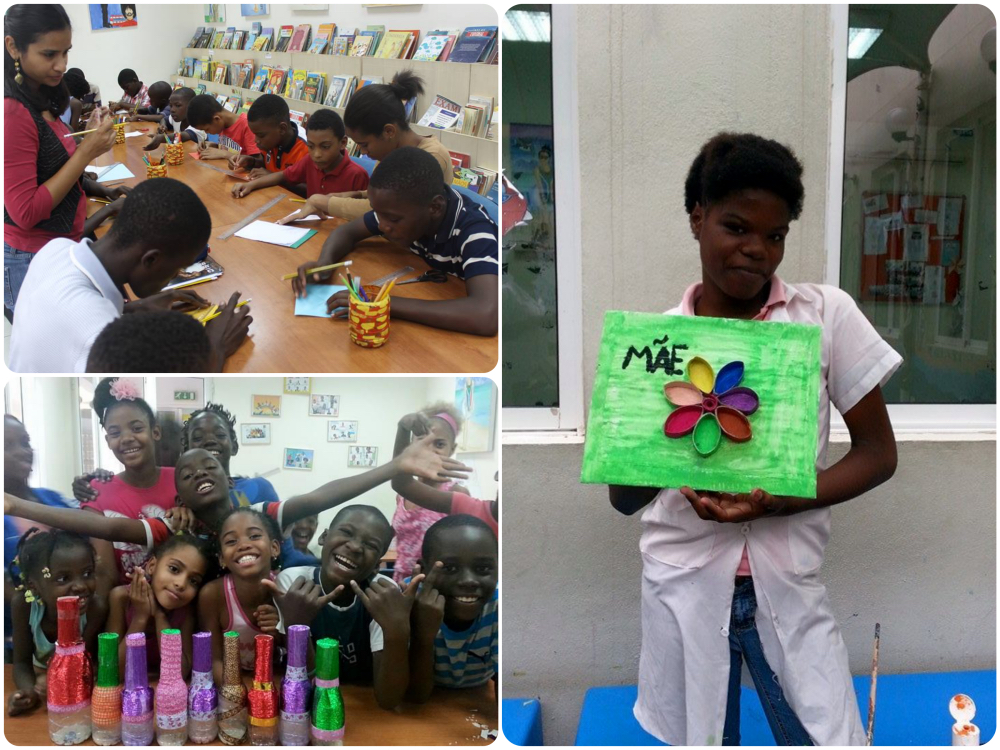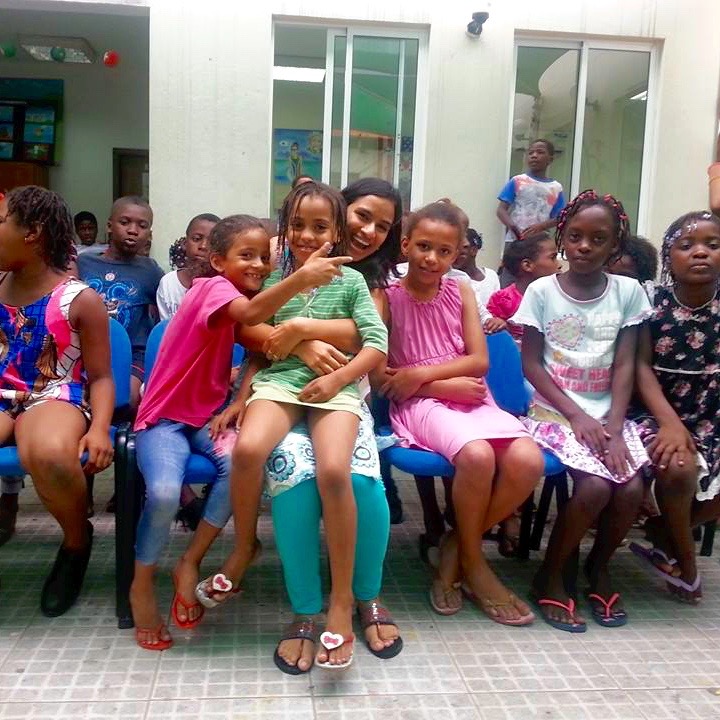 Today, it’s exactly 18 months since I first landed in Luanda. It’s almost like yesterday. How excited and anxious I was! This was the first time that I was moving to a country of which I had no clue. In my “we shall cross the bridge when it comes” attitude, I hadn’t even read much about living in Angola or what I could do in Angola. I was just excited to be in Africa.
Today, it’s exactly 18 months since I first landed in Luanda. It’s almost like yesterday. How excited and anxious I was! This was the first time that I was moving to a country of which I had no clue. In my “we shall cross the bridge when it comes” attitude, I hadn’t even read much about living in Angola or what I could do in Angola. I was just excited to be in Africa.
It took about a month to get a place and get a basic set-up going in terms of a home. After that, whoever I met, I asked if they knew some place I could volunteer in. I knew that if I wanted to call Angola home (even if it was just for 3 years), I would have to go out and be a part of it. It was easy to get comfortable in the warm and welcoming expat circles, which I am grateful for, but working with children is what I love and I had to find a way.
In the following February, I started volunteering with a local non-profit- ‘Fundacao arte e cultura’. They have a lot of projects, but I primarily volunteer in the children’s centre. I love spending time with the kids, designing and taking new sessions and just being there for them. The last 16 months have been beautiful, with their fair share of ups and downs. This has been my longest, continuous, full-time volunteering project till date. There is so much that I have learnt, particularly while volunteering in Luanda.
I came across so many creative people – artists, musicians, writers and dancers. With them, I explored the city and its culture. Volunteering helped me be more me than just an expat wife.
Language was the first thing that I was hesitant about, before coming to Angola. I knew just about five basic phrases when I started volunteering with children. It’s amazing how much one can converse simply by gestures and body language. But more than that it was amazing how quick I was able to learn the language with them. They were not shy of laughing at me when I spoke something that was grammatically incorrect. Moreover, they weren’t shy of correcting me. Most adults would try and understand what I was trying to say and didn’t feel the need to correct. Thank God children are not spoiled by our false sense of etiquettes!
I followed my husband to Angola. As soon as we reached, we immediately had a circle of engineers (and their families) working in the same field. Angola is portrayed as a very unsafe place and so avenues of meeting people outside of his field were limited. But when I started volunteering, I saw a whole new side of Luanda and Angola. I came across so many creative people – artists, musicians, writers and dancers. With them, I explored the city and its culture. Volunteering helped me be more me than just an expat wife. With them, I found inspiration to create something myself.
I met local heroes in small communities outside the city who were running schools in their backyards. I also met musicians teaching music to children on the streets. And I found new purpose for my skills.

Image has been sourced from <https://unsplash.com/>
Volunteering allows for a lot of freedom. It allowed me to work on my schedule and do activities that I liked. However, more than that, I knew that I had an avenue in the organization that I was volunteering with to try different ideas. When I arrived, the children’s centre did really have a lot going on. Therefore, I was told that I have all the freedom to bring new sessions. But with freedom also came the responsibility of the children. I loved that responsibility. It motivated me to try harder, to not give up if one way of teaching didn’t work. And to see the children slowly blossoming has been the biggest reward.
Teaching is a two-way street! And I am not just talking of the children teaching me the language. In order to teach them, I would look up newer activities and practice and learn before teaching them. The one thing that really concerned me was the lack of recycling and, instead of complaining about it, I decided to do more recycling activities with the children. My strongest belief is that if a message has to go out into the society, the children of the society have to be the ones taking it there. If they understand that things that seem like an apparent waste can be turned into beautiful objects, they are less likely to throw it into the garbage or let their elders do so. I never thought I would ever know how to weave a basket with newspapers or how to create a wall mosaic with toilet paper rolls. We are all learning together here.
On the outside, Luanda currently looks like a picture of development. There are the latest models of everything and high rises are coming up everywhere in the town. But the country went through a civil war that lasted thirty years and that ended just twelve years ago. Thirty years is more than one generation. A very small section of higher middle class and upper class Angolans were able to escape at that time and come back later to claim all the big jobs. Because of my volunteering, I work with and meet people who witnessed and lived the war. I met a girl who was taken in as a slave when she was a child and it was only after eight years that she could escape. I met another who lived in a forest for almost a year when her family fled the war. I feel that I got a better sense of the societal fabric because of a better understanding of where it came from. And that gave me a sense of belonging.
The one thing that really concerned me was the lack of recycling and, instead of complaining about it, I decided to do more recycling activities with the children.
But it is not all rosy. There are days when I suffer from bouts of helplessness, frustration and losing hope…When I started building a database of all the children who came to the center, I saw that, in a month, more than a hundred different children came to the center, but not one of them came regularly. A child who came today, may come the day after, the week after, the month after; or may not come at all. I try to understand, but still, at times, it is difficult to accept that a ten year old has to stay back at home because she/he needs to cook food for the family; or because her mom has gone for work and she has to look after the baby or it because it rained so hard the day before that they have to spend the entire day removing water from their home, one bucket after another.
Sometimes there are kids that have been abandoned by their families. A priest who runs an orphanage of abandoned children told me how the children go through a completely different trauma because they know they have their parents and still can’t see them or be with them.
Sometimes they do an artwork that leaves you bewildered. One child painted a high heel sandal stamping on a heart, with blood coming out of the heart, and a crying rose. What was it all about? She never came back and we could not find her home!
Volunteering has been a mixed bag of emotions for me. I have experienced happiness, love, pride, joy, disappointment, fear, hope, faith and freedom. And it is these experiences that have helped me to integrate myself into the everyday life of Angola. It is these experiences that help me be more me. Everyday that I volunteer, everyday that I go out and serve, I learn something new about the city and its soul. And I feel like I am no outsider.
